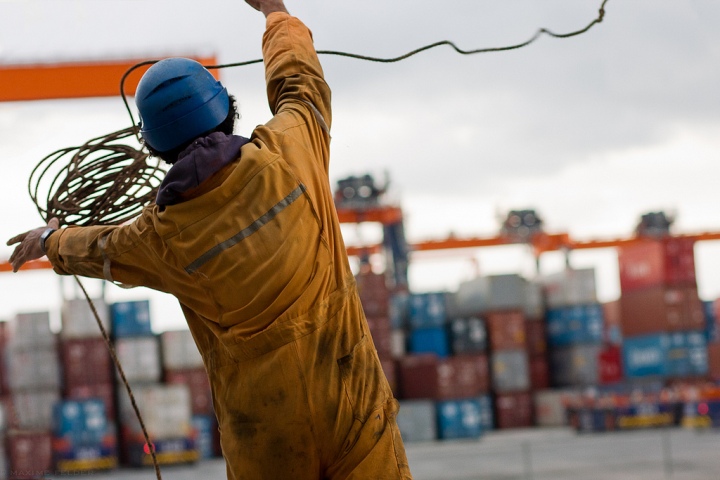NZ Invests $1M in Port Welfare for Seafarers, Expands Global Leadership Role
With 99 percent of New Zealand’s trade—both imports and exports—being transported by sea, the maritime industry is a critical pillar of the country’s economy.

- Country:
- New Zealand
New Zealand has reinforced its global leadership in supporting the rights and well-being of international seafarers with the announcement of nearly $1 million in funding for welfare services at 12 ports nationwide. The funding, administered through Maritime New Zealand (Maritime NZ), was unveiled by Associate Transport Minister James Meager at the opening of the new South Canterbury Seafarers Welfare Centre in Timaru.
A Lifeline for the Lifeblood of Trade
With 99 percent of New Zealand's trade—both imports and exports—being transported by sea, the maritime industry is a critical pillar of the country's economy. Minister Meager emphasized that supporting seafarers is not just a humanitarian duty, but an economic imperative.
"It's critical for our economy that we are a country which treats international seafarers fairly, and ensures their rights are protected," he said.
The grants are part of New Zealand's effort to meet its obligations under the Maritime Labour Convention (MLC), a global treaty that sets minimum working and living standards for all seafarers.
Key Services Funded by the Grants
Now in its second year, the grants scheme provides funding to port-based welfare services that directly benefit thousands of international crew members who arrive at New Zealand's shores each year. These services include:
-
Free Wi-Fi and telephone access to enable seafarers to stay in touch with families during long months at sea.
-
Welfare officer visits to ships, especially when crew members are unable to go ashore, ensuring they have adequate supplies, mental health support, and working conditions.
-
Transportation for personal needs, such as shopping, medical appointments, and other onshore activities.
-
Financial services access, including currency exchange and international money transfers.
-
Information and advocacy about rights under the MLC, ensuring seafarers understand their entitlements and can seek help if needed.
-
Operational support for welfare centres, like the new facility in Timaru, which offer a physical haven for rest and recovery during port stays.
Funded by Industry, Inspired by Solidarity
What makes New Zealand's approach particularly noteworthy is its industry-led funding model. The grants are financed through levies paid by the maritime industry, a pioneering model globally. Traditionally, these services in other countries have relied largely on charitable funding.
"New Zealand is leading the way for international seafarers' welfare. We are the first country to fund these services through industry levies, which are predominantly funded by charities overseas," Minister Meager noted.
The initiative reflects a shift in responsibility, recognizing that those who benefit from seafarers' labour—such as shipping companies and exporters—should share in the cost of ensuring their well-being.
Productivity and Protection Go Hand-in-Hand
The grant programme aligns economic efficiency with ethical labor practices. Healthy, well-rested, and supported crews not only reduce the risk of accidents and legal complications but also enhance vessel performance and overall maritime safety.
"We know the maritime sector is a key piece of New Zealand's economy, and the industry's commitment to pay for seafarer welfare services is an acknowledgement that healthy crews increase productivity, improve safety and help better protect our coastlines," Meager explained.
Continued Expansion and Future Outlook
With the opening of the South Canterbury Seafarers Welfare Centre in Timaru, New Zealand adds another essential port to its growing network of support facilities. As the global shipping industry continues to face challenges—from supply chain disruptions to crew retention issues—New Zealand's model offers a replicable and sustainable blueprint for seafarer welfare.
As Minister Meager highlighted, the initiative not only strengthens New Zealand's reputation as a maritime nation but ensures that those who keep its trade routes running are treated with dignity and respect.
ALSO READ
-
New Zealand's Sweeping Victory Over England in ODI Series
-
New Zealand, Singapore and Chile Launch Green Economy Partnership Talks
-
Matt Henry Out, Clarke Called In for New Zealand Finale
-
New Zealand Expands Sanctions on Russia's Shadow Oil Fleet
-
India and New Zealand: On the Brink of a Trade Transformation









